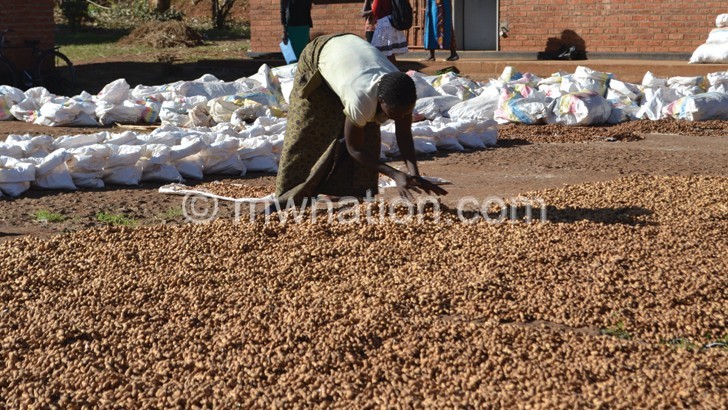Warehouse receipt law, game-changer—experts
Agriculture experts say implementation of Warehouse Receipt Act is a game-changer in solving challenges for farm produce market access facing smallholder farmers.
The experts said the implementation of the Act, which was gazetted in October last year by the Minister of Industry, Trade and Tourism, has delayed because there are no guidelines to operationalise the law.

National Smallholder Farmers Association (Nasfam) chief executive officer Betty Chinyamunyamu in a written response on Monday said there is need for more awareness on the Act and related pieces of legislation so that the provisions within the Act are well understood by all the stakeholders.
She further cautioned government to limit its intervention in commodity marketing in a way that narrows market opportunities for farmers.
“For example, export bans have proved difficult and fuel speculative behaviour which harms farmers. For structured markets to work, there is need for supporting marketing infrastructure, especially
better road network and storage facilities.
“Promoting structured markets is a solution to inefficiencies farmers experience in the formal markets,” she said.
Chinyamunyamu believes the Act gives confidence that farmers can enter into a formal marketplace and negotiate with traders, processors, millers, banks in an organised, regulated and transparent manner.
Among others, the Act defines the legal status of the warehouse receipts as documents of title which give farmers opportunities to access financial services as they can now use the receipts as collateral.
It also clarifies rights and obligations of stakeholders, including warehouse operators who are supposed to safeguard farmers and their products in case of unforeseen eventualities.
This means that farmers can now participate in structured markets within an acceptable legal environment that open up to more market opportunities.
Agriculture expert Tamani Nkhono-Mvula said the warehouse receipt system (WRS) is one of those mechanisms aimed at helping farmers have access to structured markets.
“Most of our farmers are not organised to put together their harvest to meet the minimum entry requirements for most entities participating in the system. The cost of entry and participation and also the time it takes to realise the benefits is also a huge setback,” said Nkhono-Mvula.
“However, the system is good as it provides the farmers an assurance of a better price, access to credit as the warehouse receipt can be used as collateral to get a loan and the insurance in case of damage to the crop.”
Malawi has two structured markets, namely, Agricultural Commodity Exchange for Africa and AHL Commodity Exchange, a subsidiary of AHL Group, formerly Auction Holdings Limited.





